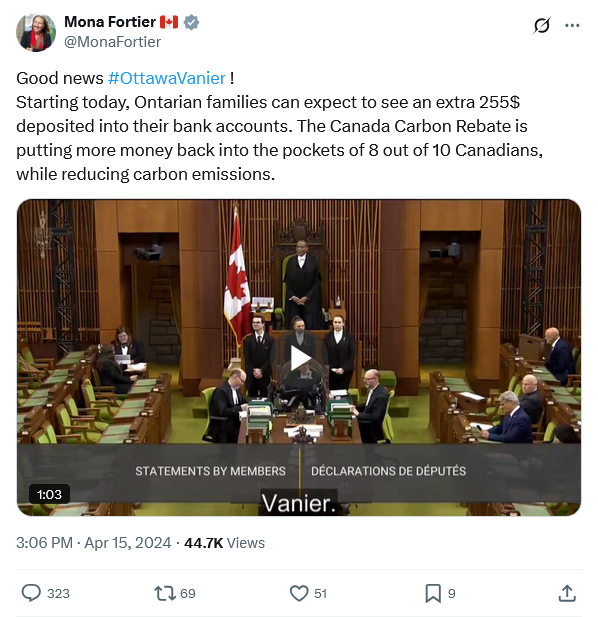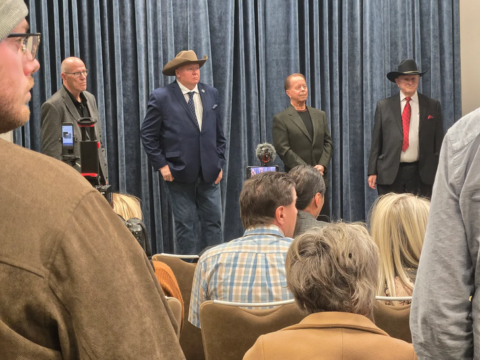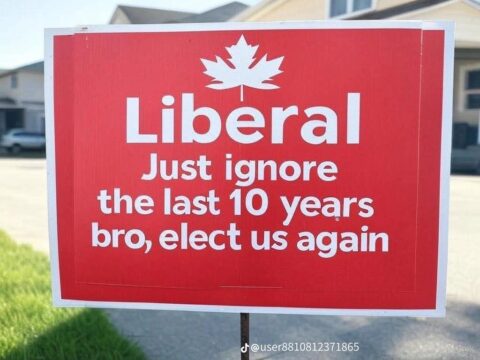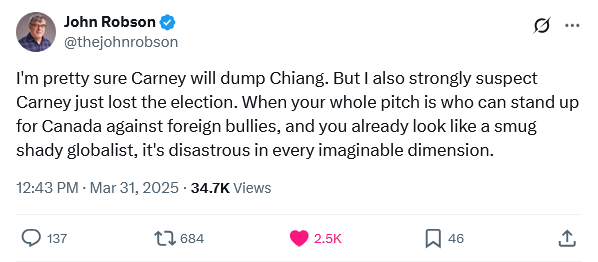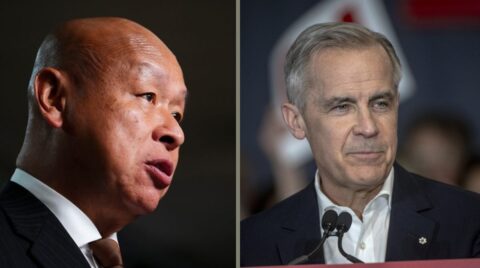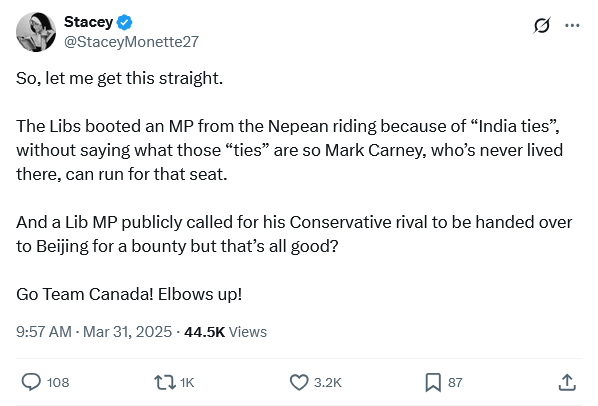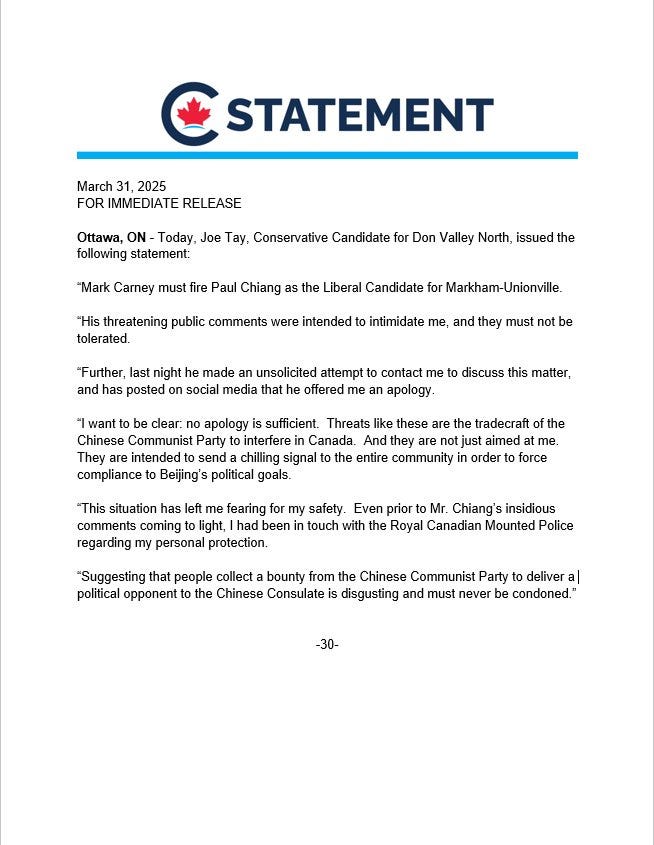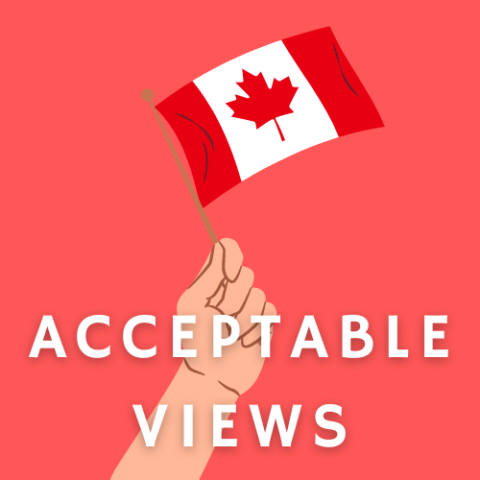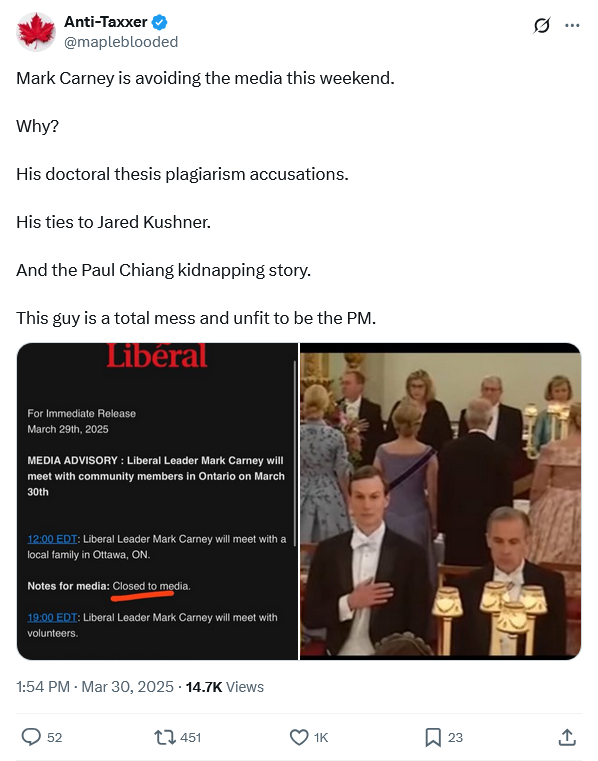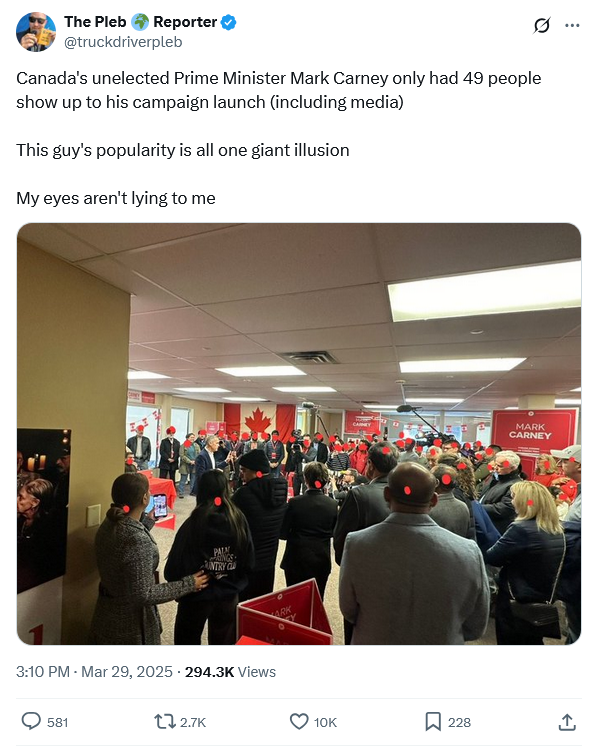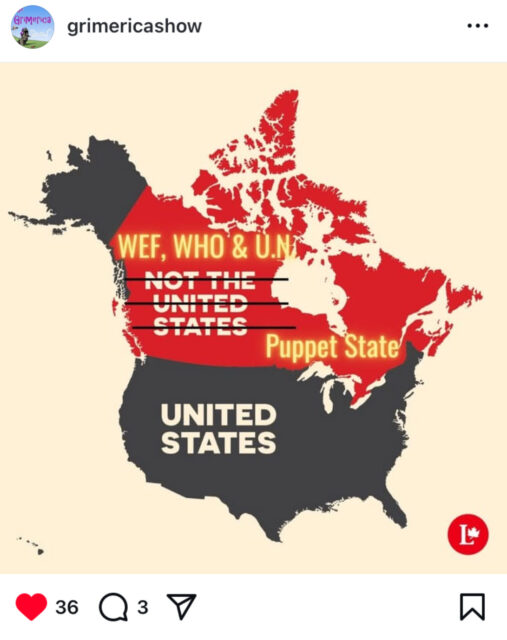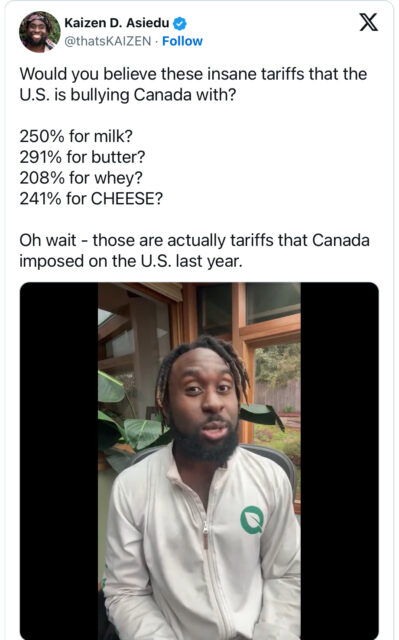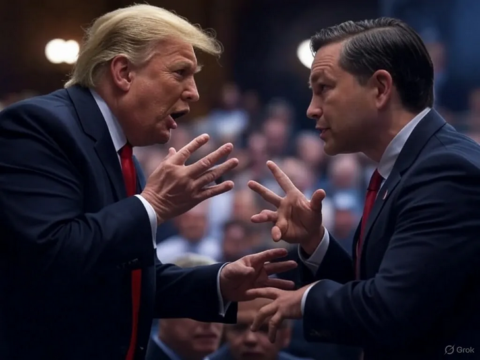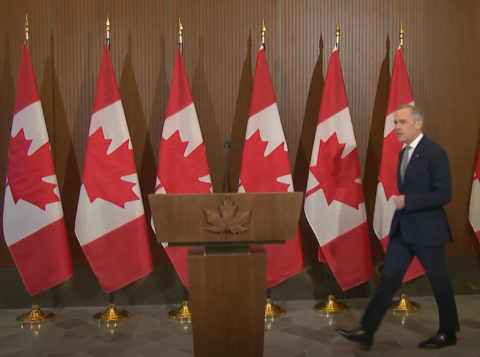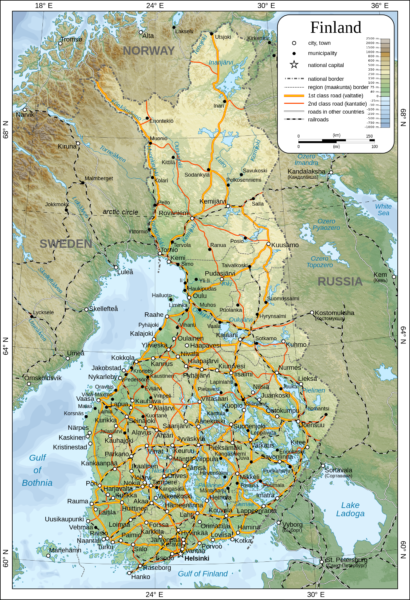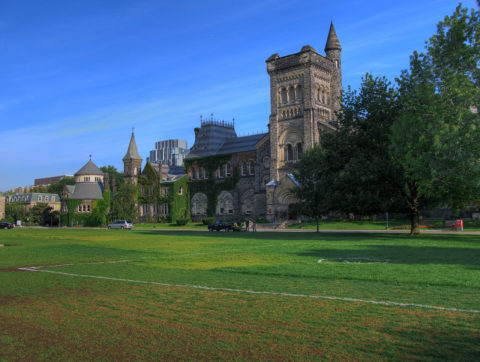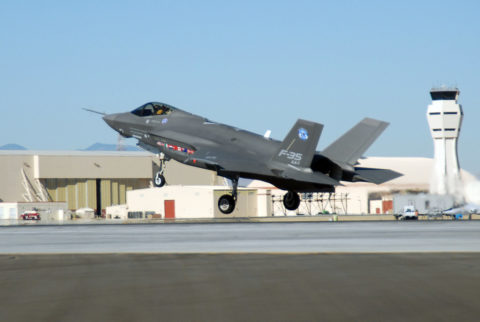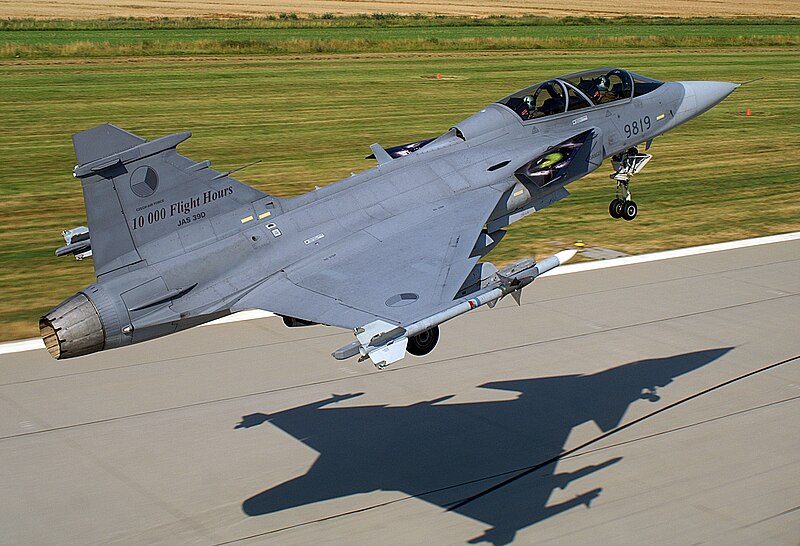Among the items in this week’s “Bullshit Bulletin” from The Line is a thoroughly earned drubbing for the federal Liberals who took full credit for eliminating a particularly unpopular tax … that they spent the last several years justifying for “putting more money in Canadians’ pockets”:
Your Line editors are fans of loopholes. And we’re glad that when we laid out the ground rules for the Bullshit Bulletin last week, we made room for things that would technically pass a lie detector test, but are still too egregiously bullshitty to not be called out.
Mona Fortier, Liberal party whip, former cabinet minister and current candidate in Ottawa-Vanier-Gloucester, step up and collect your prize. You’re the first stop in our second bullshit bullet of this campaign. To be clear, Fortier is accepting this award on behalf of the entire Liberal party. The absolutely breathtaking hypocrisy of watching these guys campaign on the dismantling of the carbon tax is something to behold.
If you missed it, the zeroing out of the “consumer-facing” carbon tax took effect this week, at midnight on April 1. This resulted in an immediate drop in the price of gas at many stations across the country. This genuinely did make the news. Your Line editors heard local radio stories about it as they were out and about on their various errands this week. Many of those stories, but not all, made a point of noting that the price drop was directly related to the carbon tax coming off the price of a litre of gas.
And that’s where Fortier steps in. She was quick to take to social media with a video of herself at a gas pump, celebrating how her government had made the lives of Canadians more affordable.
Couple of things.
First, your Line editors have some history of noting the absurdity of politicians posing at gas pumps. Our favourite is still the Conservative who clearly did not have a car and simply posed awkwardly by a pump. But in general, these photo ops are really stupid. And we’re sure they’re demeaning and embarrassing for the people involved. Add this to the long and growing list of why we would never, ever agree to subject ourselves to the humiliation of a life in politics.
But we can’t help but note the chutzpah — or the bullshit, more plainly — of the Liberals touting lowering the price of gas, when that drop is explained by them removing the tax they chose to put on gas, and then spent years insisting was necessary to prevent, literally, the destruction of the planet. We guess we can take our kids on vacation without “letting the planet burn” now. Thanks, Carney!
And we just don’t mean that this is hypocritical in the abstract. Fortier herself, not all that long ago, was loud and proud about how the carbon tax was helping low-income Canadians by giving them more in rebates than they were paying in tax.
Keen-eyed observers might note that there is less than a year between those tweets.
What else can we call this bullshit? We can gussy it up a bit. We can call it hypocritical bullshit or shameless bullshit — but fundamentally, it’s bullshit. The Liberals taking credit for removing the carbon tax makes about as much sense as them taking credit for rescuing a man from drowning whom they beat senseless and threw over the side of a yacht. The entire thing reminds us of the Hot Dog Man sketch — an obviously guilty party insisting, despite the evident disbelief of everyone else, that they aren’t responsible for the problem. Except this is actually worse — they’re claiming they fixed the problem, while studiously ignoring any question of where it came from.
Only in politics would someone actually seek to claim any credit for reversing a cost that they had willingly inflicted on people, despite howls of protest, for years, all while insisting the pain was necessary, and even worth it, because of the rebate. And only in Canada would we have very little expectation that the voters would actually hold those people accountable for their, wait for it, bullshit.


